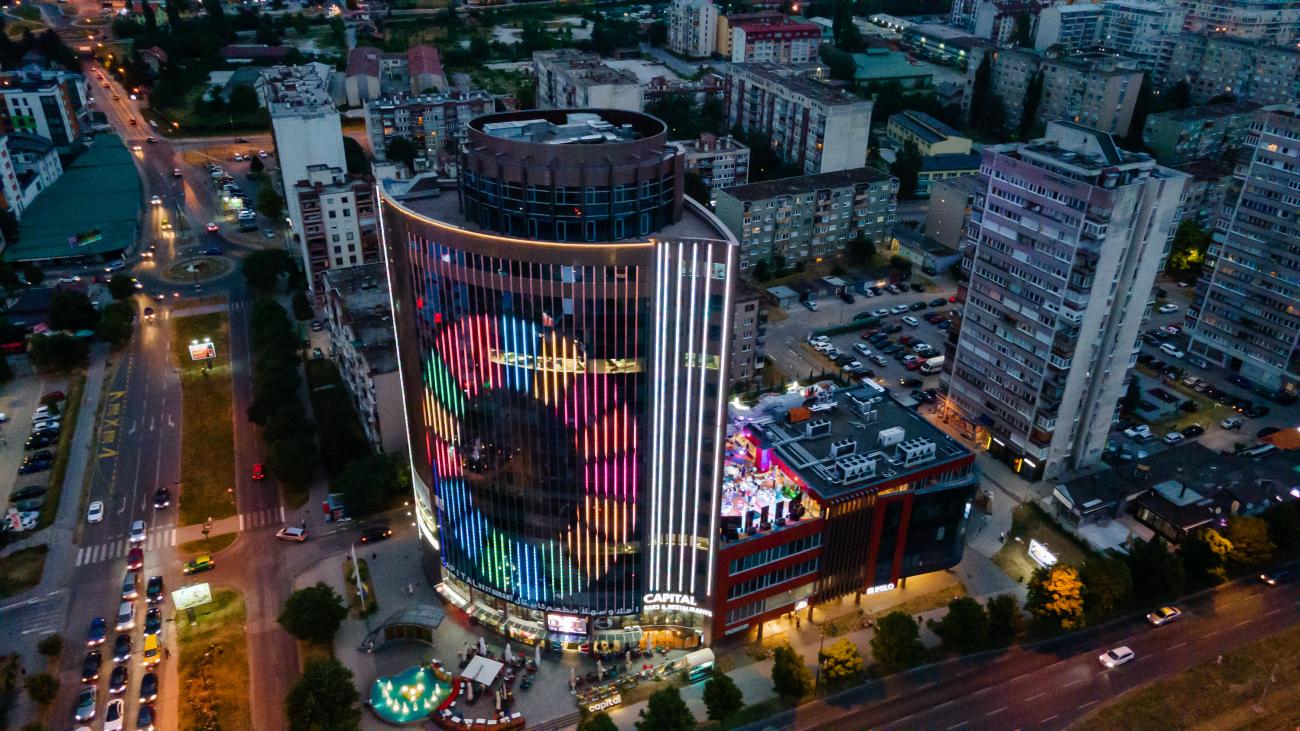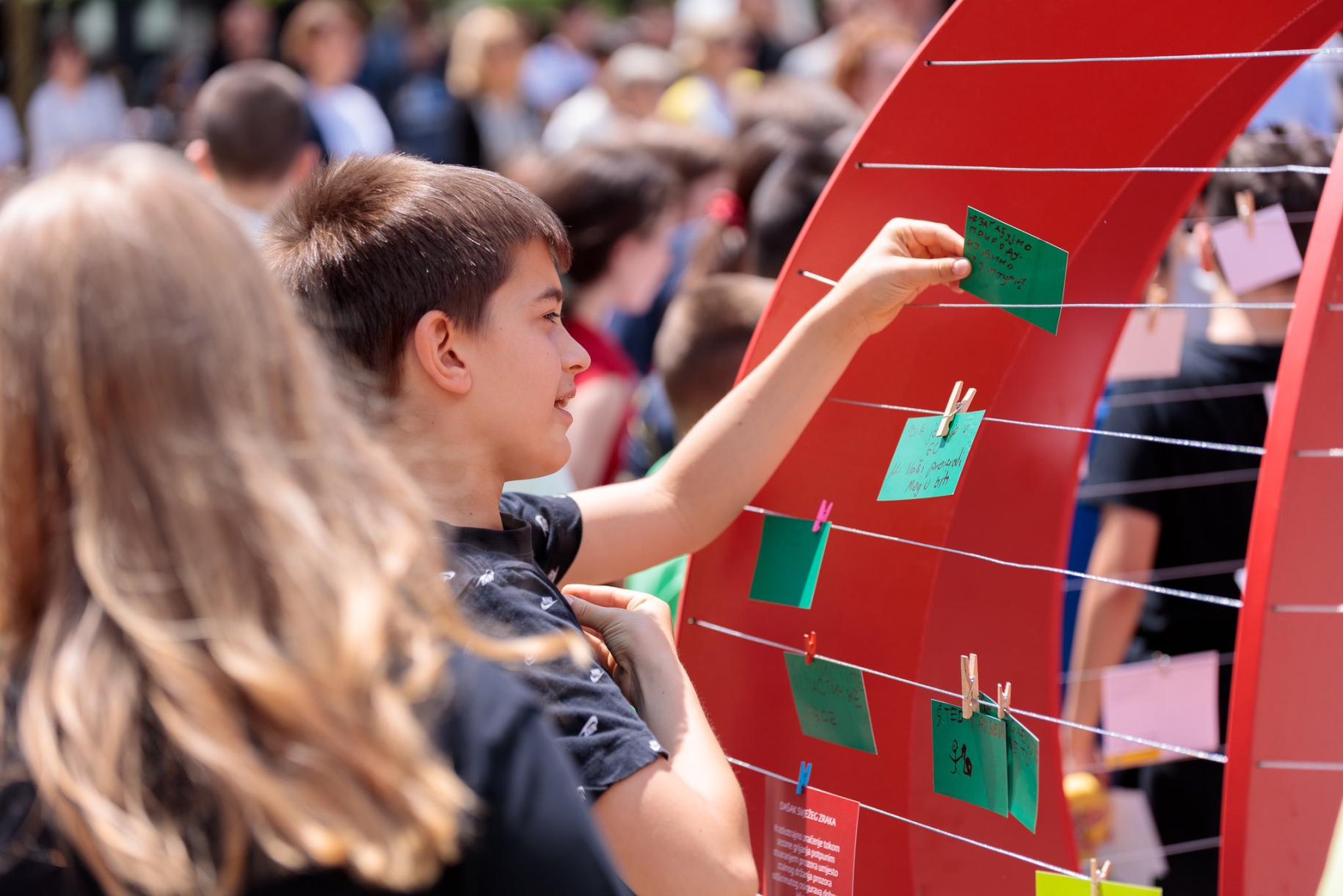SDGs in review: Positive change towards a greener, inclusive future in Bosnia and Herzegovina

For Bosnia and Herzegovina, the adoption of the 2030 Sustainable Development Agenda in 2015 marked a critical step forward for people, planet and prosperity. Despite a complex political situation, this year Bosnia and Herzegovina will present a second Voluntary National Review (VNR) endorsed by all government levels across the country at the High-Level Political Forum (HLPF) in New York, outlining the progress achieved on the Sustainable Development Goals (SDGs).
In 2021, the Council of Ministers formally adopted the “Sustainable Development Goals Framework”- the first country-wide vision for sustainable development in over a decade and established a first-of-its-kind inter-ministerial SDG Council, sending a strong signal of Bosnia and Herzegovina’s commitment towards inclusive, sustainable development.
In the face of recent global challenges, including the COVID-19 pandemic, the conflict in Ukraine, and historic levels of inflation, the SDG Framework provides a roadmap to ensure that no one is left behind in current and upcoming processes of strategic planning and investment in Republika Srpska, the Federation of Bosnia and Herzegovina and the Brčko District. Within the context of Bosnia and Herzegovina’s accession to the European Union and its own long-term socio-economic vision, the framework helps address critical transitions in the areas of governance, economy and the environment to ensure a fairer, prosperous and greener future for all.
In my role as the Resident Coordinator for the United Nations for three years in BiH, I have seen first–hand the SDG Council’s efforts to cultivate leadership for the SDGs, including across the Western Balkans. The generous support of Sweden, implemented by UNDP in partnership with UNICEF and UN Women has allowed the UN Team in Bosnia and Herzegovina to accompany this process.
Against the backdrop of the upcoming VNR, here are some of my reflections:
Inclusion despite challenging times
Despite political divisions, the SDGs have provided a platform for inclusion of a wide range of actors on the future of development in Bosnia and Herzegovina, including the private sector, citizens, and academia. An example has been the consultation of over 45 civil society organisations, notably those working with vulnerable groups in the development of the VNR, with consultations held in Sarajevo, Brcko District, Banja Luka, Tuzla and Mostar during March 2023.
The SDGs are fundamentally about the right to development, and economic, social as well as civil, cultural, and political rights to ensure that the commitment to modernize and transform society leaves no one behind.
Energy transition and efficiency
Like many countries, Bosnia and Herzegovina faces often complex transitions in the energy sector, both with the need to improve efficiency of existing energy networks, and to promote renewable energy for a greener future. Under the SDG Framework Bosnia and Herzegovina has created “virtual power plants”, connecting networks of electricity generators, storage devices, and smart meters, to better manage consumption while ensuring system stability. By the end of 2022, six virtual power plants had access to Bosnia and Herzegovina’s electricity market.

Leveraging the private sector’s role
To foster a culture of sound competition and reinforce commitment to the SDGs, Bosnia and Herzegovina introduced the SDGs Business Pioneers Award five years ago, recognizing private sector excellence in promoting sustainable development. In 2023, 114 companies put forward entries to recognize their work to create and retain decent jobs and reduce their impact of the environment. The final round of candidates showcased examples of their efforts to raise awareness of the importance of sustainable businesses, circular economy, digitalisation and decarbonisation across Bosnia and Herzegovina.
Driving regional cooperation
The country has been actively promoting regional cooperation through the mid-term evaluation of SDG progress in the EU Adriatic-Ionian macro-region, annual meetings of Western Balkan experts, the involvement in the Central European Initiative, and active participation in the Regional Forum on Sustainable Development in Geneva.
Challenges
For the time being, Bosnia and Herzegovina’s public funds are insufficient for 2030 Agenda implementation. Thus, an intergovernmental working group was established with the aim of providing recommendations to mobilize alternative resources and propose innovative financing methods to propel progress toward the 2030 goals.
To accelerate positive change, with the support of the United Nations Joint SDG Fund, the UN has supported the drafting of a Strategic Financing Framework for Agenda 2030 in late 2020. This framework aims to optimize the allocation of public funds for sustainable development, address the SDG financing gap in priority areas, and explore innovative financing instruments through collaboration with finance ministries, entities, and experts at both national and international levels.

The United Nations support for the SDG Framework
The United Nations in Bosnia and Herzegovina, coordinated by my office, are proud to have provided continuous support to the efforts of the authorities and people of Bosnia and Herzegovina to implement the SDGs Framework and advance the 2030 agenda. I have been proud to lead the United Nations team as it has convened stakeholders, international community, and local counterparts, across the country in person and online, to provide expertise, insight and lessons.
The time for smart choices is now. Bosnia and Herzegovina is committed to accelerating its progress towards sustainable development by sharing experiences and collaborating with partners, both within and beyond its borders, to generate added value and make a significant impact on the global SDG agenda.
This blog was written by the UN Resident Coordinator in Bosnia and Herzegovina Ingrid Macdonald, with editorial support from UNDCO. To learn more about the work of the UN in Bosnia and Herzegovina visit Bosniaherzegovina.un.org













